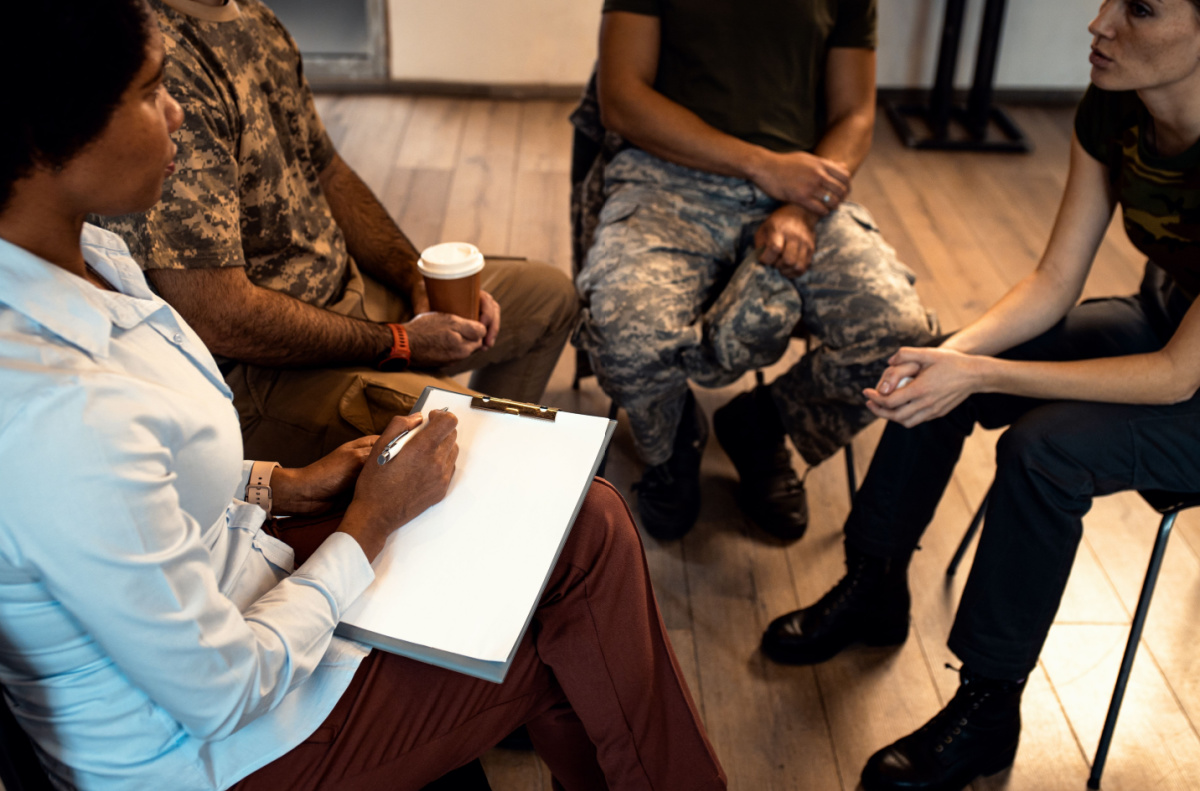Have you ever felt the adrenaline rush when taking a risk, whether it’s jumping out of an airplane or placing a bet on a roulette wheel? For many of our brave veterans, the thrill of gambling can be a familiar sensation and an enjoyable one at that. But what happens when the occasional flutter turns uncontrollable? What happens when the harmless entertainment morphs into a destructive habit that starts to take over your life? We’ll look into the often-overlooked issue of problem gambling among veterans and answer some of the biggest questions.
The Connection: Veterans and Problem Gambling
Why are our heroes more susceptible? How does this issue manifest itself? And most importantly, what can we do to help those battling this urge? It’s a question that many veterans, families, and support groups try to solve. For starters, veterans are statistically more likely to develop a gambling problem than the general population. Studies have shown that veterans are twice as likely to experience pathological gambling and four times more likely to be diagnosed with a gambling disorder. But what makes this particular group of individuals more prone to falling into the trap?
One of the main contributors to problem gambling among veterans is post-traumatic stress disorder (PTSD). This mental health condition can develop in individuals who have experienced or witnessed a traumatic event, such as combat. The symptoms of PTSD can be debilitating and overwhelming, leading many veterans to turn to coping mechanisms, such as gambling, to dull their emotions and escape from reality. Additionally, many veterans struggle with readjusting to civilian life after leaving the military, which can also lead to feelings of isolation and loneliness that may drive them towards gambling as a form of socialization.
Recognizing the Warning Signs
Problem gambling is a serious issue that affects people from all walks of life, including veterans. This condition goes beyond the occasional flutter on the horses or a fun night at the casino — it’s an uncontrollable urge to keep gambling despite the toll it takes on one’s life.
For veterans, the risk of problem gambling can be even higher. Understanding the signs and symptoms of problem gambling can be the first step toward helping a veteran who is struggling with this issue. It’s important to note that not everyone who gambles excessively has an issue — the key element of problem gambling is that it causes harm to the individual or those around them.
Here are some signs to look out for:
- Preoccupation with Gambling
- Increasing Bets
- Failed Attempts to Quit
- Chasing Losses
- Lying About Gambling
- Jeopardizing Significant Relationships or Opportunities Due to Gambling
If you or a veteran you know is showing these signs, it’s important to seek the right help. There are many resources available for veterans and people from all walks of life to help promote responsible gambling, including therapy, self-help groups, and treatment programs. It’s never too late to make a change for the better.
The Impact of Problem Gambling on Veterans’ Lives
Problem gambling significantly impacts the lives of veterans, often intensifying pre-existing issues and generating new challenges. Studies suggest that the prevalence of problem gambling in veteran populations ranges from 2.2% to 4.2% — a rate notably higher than the general population. Particularly, veterans with PTSD have a 60% higher rate of gambling issues when compared to the general population.
The consequences of this condition are wide-ranging and severe. Veterans grappling with gambling problems are much more likely to experience homelessness. Additionally, excessive or problem gambling can lead to negative consequences such as relationship issues, debt, loss of employment, and even increased suicide rates.
Moreover, high rates of co-occurring substance use disorders are common among veteran gamblers seeking treatment, including alcohol, cocaine, opioids, and cannabis. This suggests that gambling typically does not exist in isolation but is intertwined with other mental health and other issues.
How to Fight the Urge
Many veterans have navigated this path before and have successfully reclaimed control over their lives. It starts with acknowledging the issue and seeking help. There are numerous resources available, from therapy to self-help groups and treatment programs, all designed to provide the tools and support you need to combat this condition. Veterans have already shown their strength and resilience. Now, it’s time to use those same qualities to overcome problem gambling. Remember, it’s not about never falling; it’s about getting back up every time you do. With determination, support, and the right resources, you can regain control and start building a healthier and more fulfilling life.
Let 800-GAMBLER Lead the Way
You’ve bravely served your country; now it’s time to take a step towards personal victory. If you or a veteran you know is struggling with problem gambling, don’t hesitate to reach out to 800-GAMBLER. We offer a confidential lifeline of support, providing resources, treatment options, and a community that understands your unique challenges. Recovery is possible, and it begins with a single, courageous step. Dial 1-800-GAMBLER today — because you’re not just a veteran, you’re a fighter, and this is one more battle you can win.



